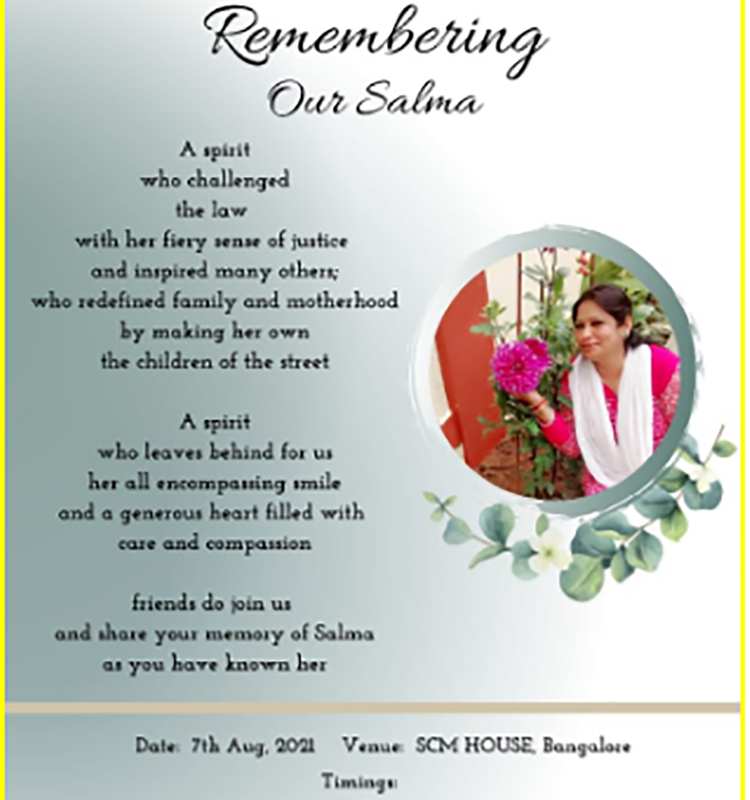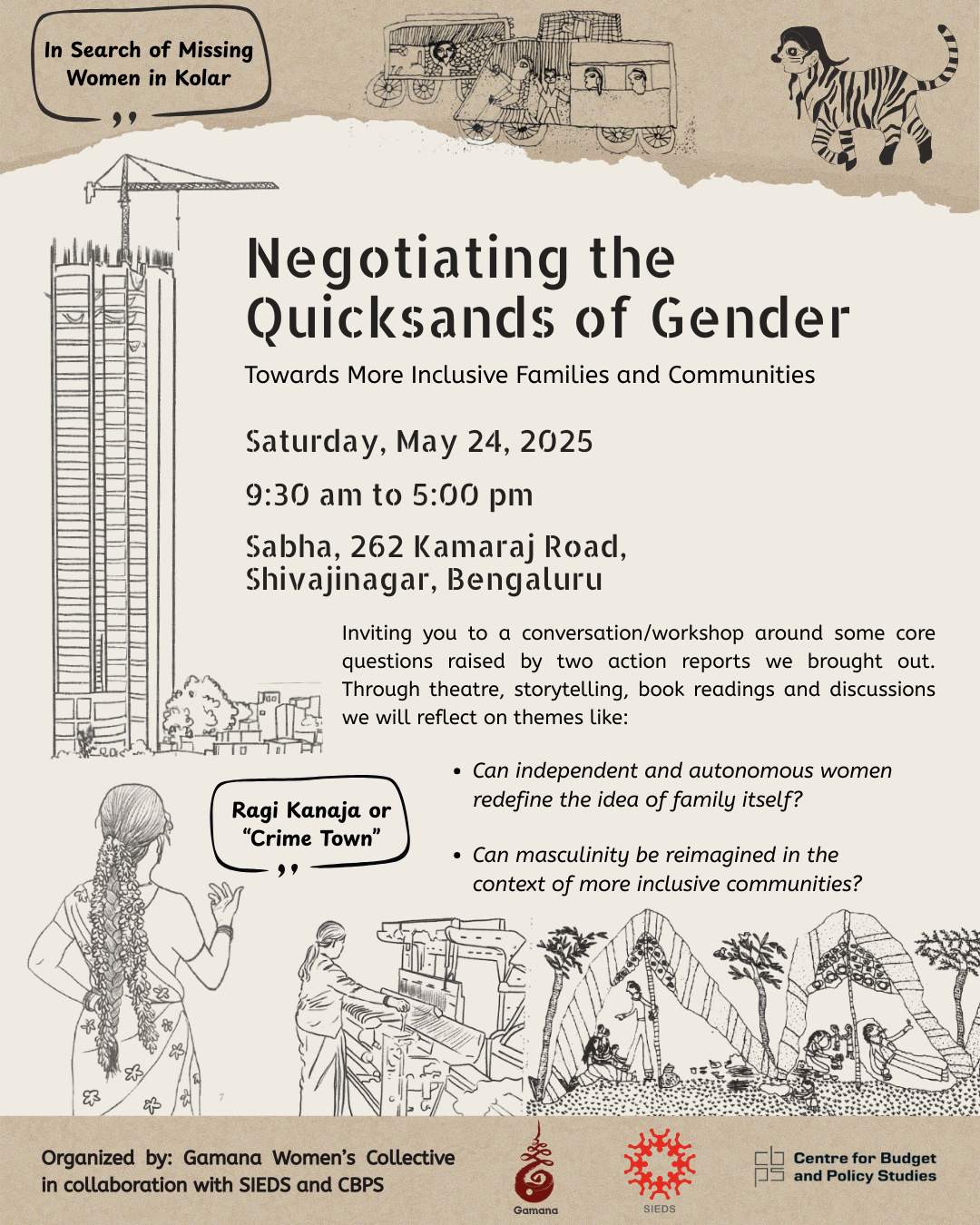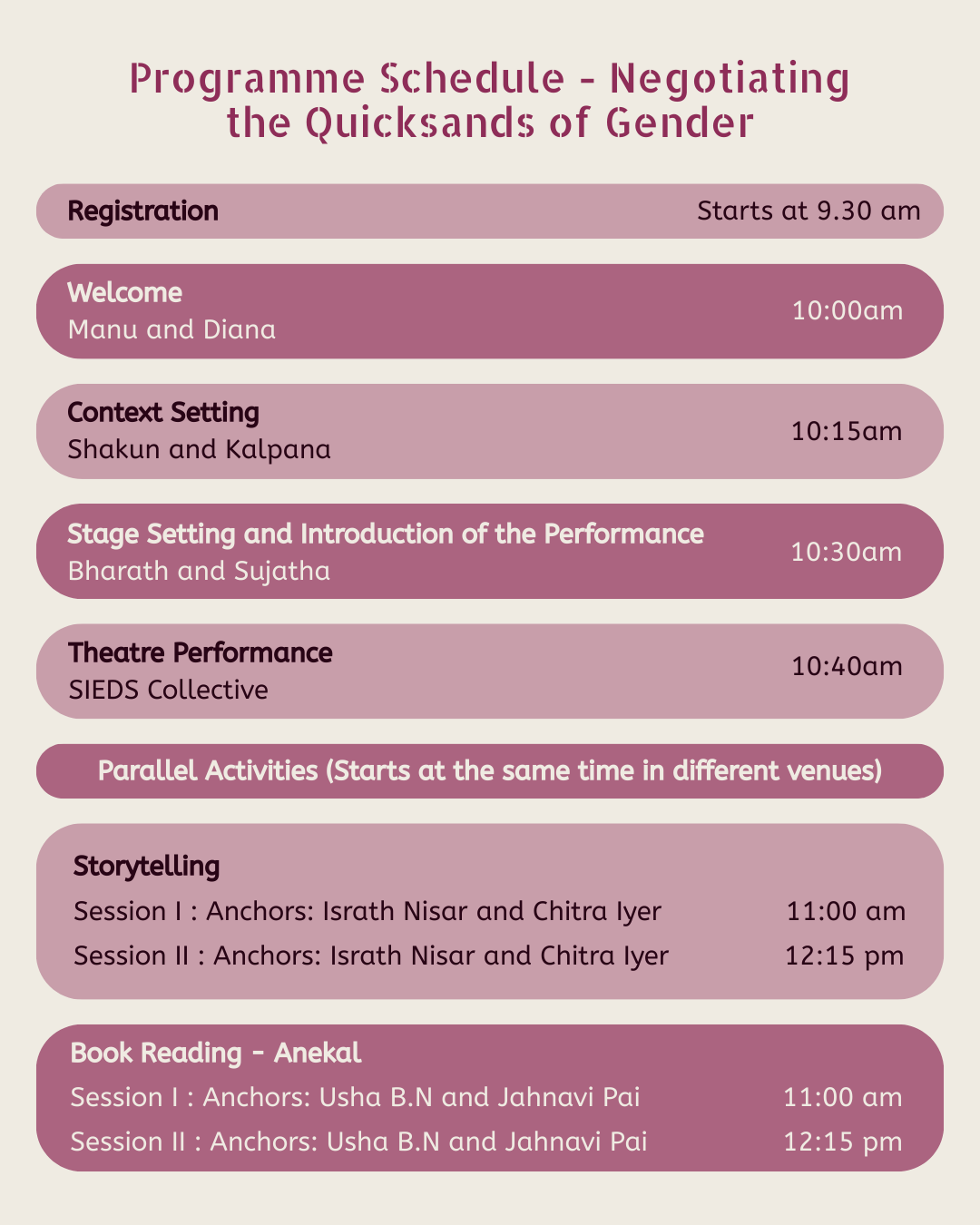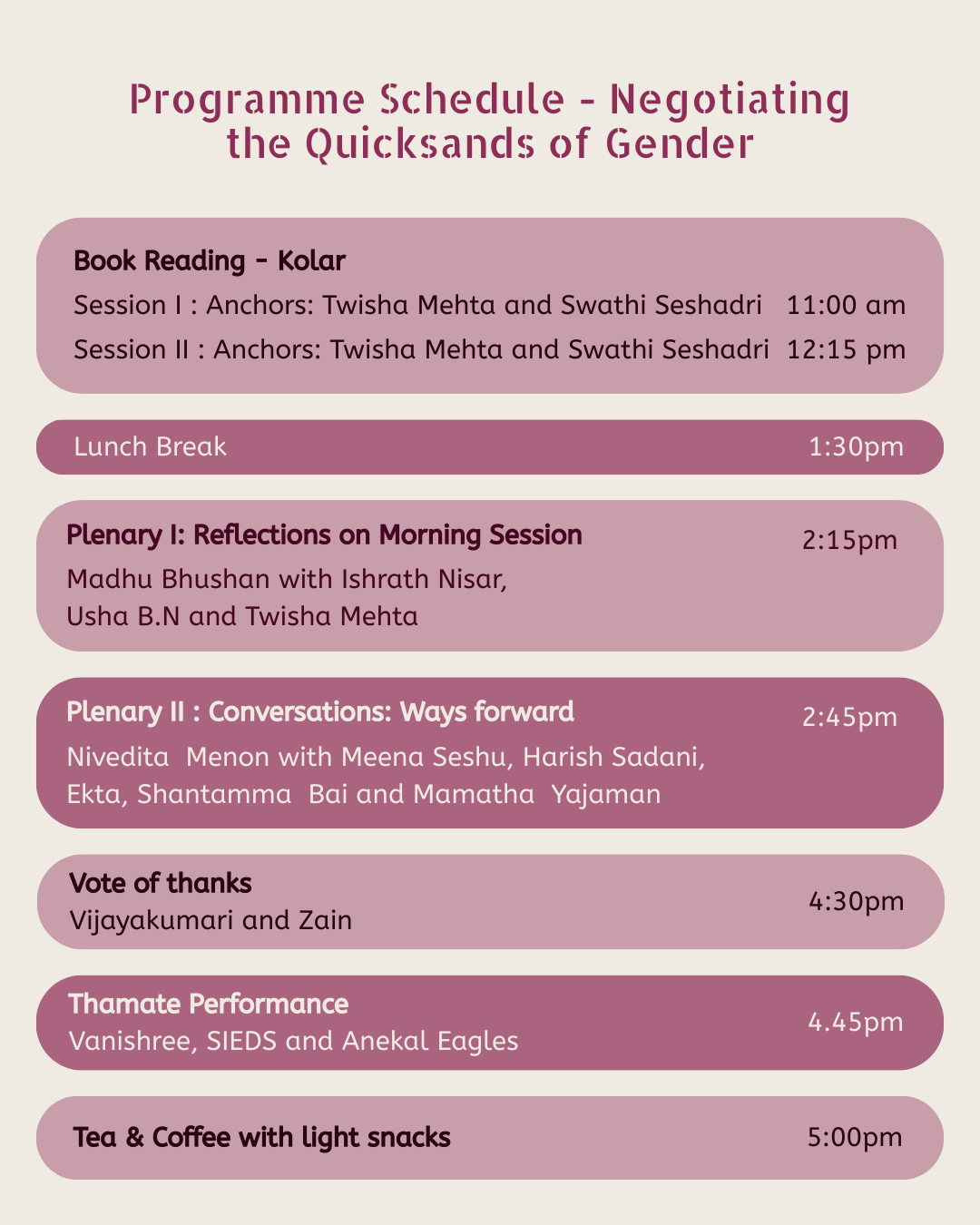Webinar and meetings
Webinar and Public Programmes
Post COVID crisis, the online virtual space played a crucial role in not only helping us connect and collaborate on many initiatives but also opened up ways in which to continue our public outreach. During the unfortunate time of the pandemic, we organized a few webinars and the members of the collective have participated in many webinars as well. Some of these are listed below.
Reinventing a people’s jurisprudence: webinar in the memory of justice suresh
Justice Suresh, a respected former High Court Justice and committed human rights activist was the President of SIEDS till he passed away in June 2020. To honour his memory SIEDS, in collaboration with SICHREM, KKNSS, Women’s Voice, Alternative Law Forum and PUCL Karnataka, organised a webinar on July 11, 2020 that sought to recall Justice Suresh’s immense contribution to evolving a people’s jurisprudence through the innumerable people’s and human rights tribunals he was central to.
The speakers included committed activists and lawyers Teesta Setelvaad, Babloo Loitongbam, Jesu Ratnam, Dr Saumya Uma, and Arvind Narrain.

A Public webinar - on violence against women
Violence on women as we all know is indeed a socially accepted, routinised, normalized invisible pandemic which we must constantly make public by raising our voices and saying ‘No’ to it; by demanding both societal and institutional responsibility. This need became more urgent in the context of women becoming veritable prisoners in their own homes in the time of the pandemic. In an attempt to listen to and empathise with the women, and to find concrete alternative institutional support mechanisms SIEDS through Gamana Mahila Samuha in collaboration with PUCL Karnataka and ALF organised a Public Tribunal/Hearing on Violence against Women in the time of COVID-19 on August 1, 2020.
Remembering our salma
Salma, a founder of Sadhana Mahila Sangha, a collective of sex workers and also a dear colleague in SIEDS passed away unexpectedly in July 2021. She was working on an initiative to generate livelihoods for older sex workers who wanted to opt out of sex work or transit out of it. A memorial to honour and remember her enormous contribution to not only the sex workers movement but the women’s and human rights movement was organised by several city based organisations and activists that was also broadcast on facebook live.

Negotiating the Quicksands of Gender
Towards More Inclusive Families and Communities
How do women “go missing” not just from police records but from our collective narratives?
Can the idea of “family” as we know it hold space for women’s autonomy and independence?
What happens when a town or locality is marked a “crime hub” and young men and women begin to be marked by it too?
Can masculinities also marked by the spaces they are embedded in, soften, shift, include?
For over four decades, Gamana Women’s Collective, in partnership with Society for Informal Education and Development Studies (SIEDS), has been part of the feminist struggle for justice — not only responding to gender-based violence but also unravelling the structural forces that sustain it.
A few years ago, in collaboration with the Centre for Budget and Policy Studies (CBPS), and in partnership with several local organisations and institutions we undertook two action-research studies in Kolar and Anekal — two rapidly transforming geographies on the peripheries of Bengaluru.
In Kolar, the study focused on the issue of women who were marked as “missing” from their families according to police records. It was largely presumed that these women had been trafficked into Bengaluru for sex work. In the context of a district that has rapidly transformed from a semi-urban/rural centre supplying agricultural produce to Bengaluru into an independent industrial hub the research reveals what drove the women away from their families and what brought them back. It’s a tale not just of subordination but also of autonomy, and the invisible and institutional forces at play in a rapidly evolving landscape.
In Anekal, a town now stigmatized as a “crime town,” we used the lens of masculinity to understand the contemporary nature of crime and its impact on young men, gender relations, and changing caste/religious identities. This town, which has been at the epicentre of successive waves of industrialization, development, and urbanization since the 1970s, presents a unique case of how crime and masculinity intersect. Through conversations with a diverse community of youth, women, and men, the study offers insights into how an inclusive space could possibly nurture less destructive, more fluid notions of masculinity, challenging dominant narratives about legality, gender, and morality.
These studies are not “reports” in the conventional sense. Nor are they unique. They are mirrors, maps, and memory-holders that ask us to reflect on the evolving nature of gender, autonomy and belonging in everyday life. From women marked “missing” to young men navigating criminalized masculinities, the stories emerging from Kolar and Anekal compel us to engage with uncomfortable truths about independence, crime, punishment, justice, shame, caste, identity, politics and community.




